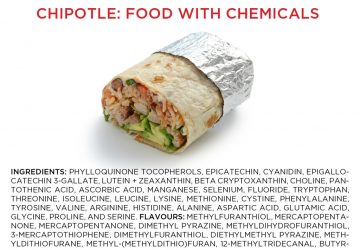 The national convention of America’s largest physicians’ association, the American Medical Association (AMA), was held this week, and activists hoped to get ringing endorsements from white-coated solons for their policy proposals. We were optimistic given the AMA’s history of taking strong stands against wingnuts. This year, the doctors gave them one mealy-mouthed expression of rent-seeking and one outright strikeout.
The national convention of America’s largest physicians’ association, the American Medical Association (AMA), was held this week, and activists hoped to get ringing endorsements from white-coated solons for their policy proposals. We were optimistic given the AMA’s history of taking strong stands against wingnuts. This year, the doctors gave them one mealy-mouthed expression of rent-seeking and one outright strikeout.
The timid hemming and hawing came on the issue of soda taxes. Dietary social engineers hoped to wield an unequivocal endorsement that soda taxes should be instituted in political debates, but the doctors didn’t give one. With studies consistently showing minuscule dietary effects (12 calories per day—enough to supposedly cause about a pound of weight loss in a year—qualifies as an optimistic estimate), the doctors couldn’t justify a statement that soda taxes would stop obesity.
Soft drinks only make up about seven percent of an average American’s dietary calories, so there’s a limited upside even if sodas were completely prohibited. (Maybe that’s why activists and regulators have popcorn and fruit juice in their sights?) Instead, the AMA ruled that doctors — er, anti-obesity programs — should get a cut of any soda tax revenues there might be, but stopped short of saying soda taxes are necessarily a good idea. “Give us money, if it happens to come in” is not exactly a hard position to take.
And if history is any guide, earmarking any future drink tax revenues won’t guarantee that the intended programs are funded or expanded. According to the Government Accountability Office, only two percent of the tobacco settlement revenues went to fund smoking cessation programs. State education lotteries also haven’t been the promised boon to public schools: In many cases existing school money was shifted back to the general fund and replaced with lottery profits.
On the matter of labeling genetically engineered foods, the AMA was unequivocal. The physicians’ group found that “there is no scientific justification for special labeling of bioengineered foods, as a class, and that voluntary labeling is without value unless it is accompanied by focused consumer education.” No wonder the organic movement has to “go on feelings.”
That finding on biotechnology won’t be music to the ears of Marion Nestle, Mark Bittman, and the Organic Consumers Association. Of course, we don’t expect anti-biotech campaigners to be stopped by mere doctors. These groups and people oppose the production of foods that could combat world hunger, increase per-acre crop yields and improve the environment. We’re not holding our breaths for a collective change-of-heart.




